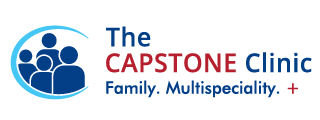Wouldn’t it be wonderful to have a memory that could retain information and remember people even as you grow older?
Unfortunately, for many, age brings along with it, a number of serious mental health diseases, and one of those is Alzheimer’s Disease. Living with such a disease, can not only affect patients but even the families, both mentally and emotionally.
Alzheimer’s Disease (AD) must, therefore, be understood better to facilitate early detection, which can help the individual and their families learn to cope with and treat specific symptoms better.
We at The Capstone Clinic, aim to build awareness and address the stigma around this disease on World Alzheimer’s Day, affecting the daily lives of more than 1.6 billion people in India and their families.
So, what is Alzheimer’s disease (AD)?
Alzheimer’s Disease (AD) is a neurodegenerative disease which is the gradual dying of the cells of the cortex of the brain. The disease is irreversible and gradually progressive leading to cognitive and functional impairment in a person.
The disease is known to affect a certain percentage of persons typically beyond 65 years of age. But there are many instances of middle age or premature onset of Alzheimer’s Disease due to a combination of multiple factors.
Memory and how it is affected by AD:
Semantic memory is that part of the memory which stores information of common knowledge such as names, colours, time, sounds of letters, working memory on how we drive a car, ride a bicycle and other basic facts that are acquired over time. Even our spatial memory which is basically, our capacity to understand the space around us, in terms of geography of our house, street, workplace, etc becomes part of memories related to the higher mental function of our brain.
In Alzheimer’s disease, patients tend to gradually forget, and the memories tend to fade away. They get confused and lost and do not realize what they do. They lose sight of judgement and reasoning, and may even do certain inappropriate things such as passing urine in public or lending too much money to someone, all without meaning to do so. They lose their capacity to think rationally.
They may also develop agnosia, where they do not recognize familiar faces or things. These patients remember old times and forget current or recent events. This often causes, especially in India, delayed diagnosis, as relatives think it is simply ageing or that a misconception that because the patient remembers a certain memory from a long time ago, he/she may have just forgotten recent events temporarily. They don’t realize until much later that it is a severe case of Alzheimer’s.
Movement loss due to AD:
In severe situations, they develop apraxia which is losing memory of learnt movement. An example of this would be forgetting how to brush or take a shower, and other simple, routine tasks done on a daily basis. During the final stages, the patient is completely dependent upon caregivers as the disease progression robs them of their own ability to care for themselves or perform even routine tasks.
Diagnosis & Care:
It is important to first check if the patient is actually suffering from the degenerative disease or going through the normal memory deterioration which comes with ageing. The diagnostic process for detection of Alzheimer’s disease includes imaging (MRI of the brain), PET scan, and blood tests, to rule out causes or confirm that the person has Alzheimer’s.

Once this is done, symptomatic treatment is provided to the patient in the form of medications called cholinesterase inhibitors which help in improving the
memory system of the patient and moderate Alzheimer’s disease. One must bear in mind that there are no treatments to stop or reverse the disease’s progression or cure it. Specific medications or exercise are prescribed to temporarily stall or improve symptoms.
Caring for a person with Alzheimer’s Disease often warrants a collaborative, patient-centric multi-speciality approach. While the condition is neurology related, the medical treatment for symptoms, physiotherapy often require general physicians and other speciality support, including psychiatric support and counselling,
not just for the patient but even more important for their family and caregivers, and this is how our clinic can help you, as we provide holistic care and treatment for you or your loved one suffering from Alzheimer’s disease.



